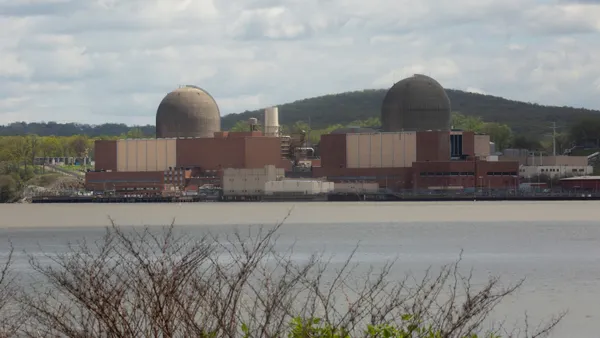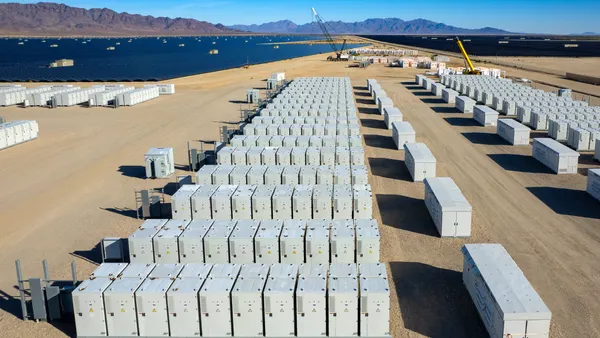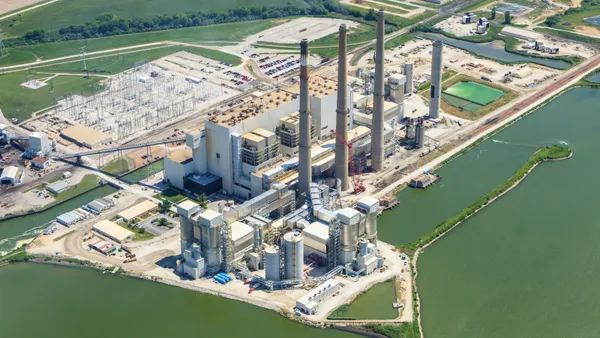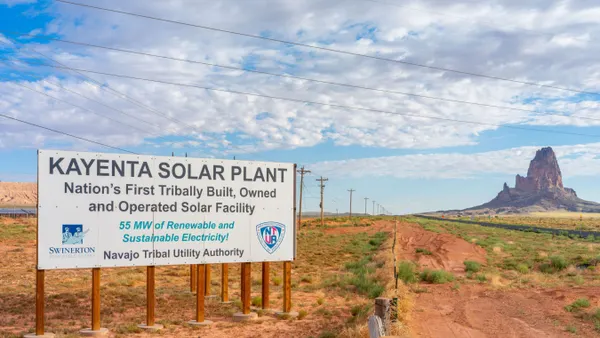Dive Brief:
- Several policy experts say there is an opportunity to move energy legislation and boost some program funding in the lame duck session of Congress, including potential action on the American Energy Innovation Act (AEIA).
- AEIA was introduced in February by Senate Energy and Natural Resources Committee Chair Lisa Murkowski, R-Alaska, and Ranking Member Joe Manchin, D-W.Va. The legislation includes provisions for advanced nuclear, carbon capture, long-duration storage and geothermal projects.
- Though AEIA has lacked key votes, there are ongoing negotiations to win support for its passage in the Senate. A companion bill already passed the U.S. House, despite a veto threat by President Donald Trump.
Dive Insight:
There is bipartisan support for AEIA, making it "the lowest hanging fruit between Republicans and Democrats," according to Charles Hernick, vice president of policy and advocacy for Citizens for Responsible Energy Solutions (CRES).
Hernick, speaking at a "Powering Forward" webinar on Thursday with other policy experts, called the legislation "a fantastic down payment on climate change" and said there is optimism that it could be passed before the next president is sworn in.
The webinar was hosted by the Business Council for Sustainable Energy and the Clean Energy Business Network, in partnership with CRES Forum.
"There is a narrow window, but there are active negotiations on Capital Hill right now," said Hernick.
The legislation contains measures sponsored by more than 60 Senators, but so far has lacked key votes to advance. Provisions focus on energy efficiency, renewables, energy storage, carbon capture, advanced nuclear, cybersecurity, grid modernization, and other areas.
"Negotiations are ongoing and Senator Manchin is optimistic," spokesperson Sam Runyon said in an email.
72 senators support the bill and lawmakers in the House want the measure to pass as well, according to Karen Wayland, founder of kW Energy Strategies.
"Some House members are interested in seeing that bill pass, because it clears the deck and allows them to turn to potentially a clean energy standard and other pieces of energy policy in 2021," said Wayland. "This is an opportunity."
Wayland also said that lawmakers will need to consider authorizing additional funding for the Low Income Home Energy Assistance Program (LIHEAP), which helps utility customers pay their bills.
"If Congress doesn't do a large rescue bill, a COVID-19 response that includes funding for LIHEAP, it's going to be very difficult for utilities over the coming years," said Wayland. "There's going to be a lot of suffering. People are going to be holding billions of dollars, collectively, in unpaid utility debt."
There was $900 million in supplemental LIHEAP funding included in the Coronavirus Aid, Relief, and Economic Security Act, signed in March.
LIHEAP dollars issued in the first COVID relief package "were incredibly helpful" to customers in Oregon and around the nation, according to Nidhi Thakar, co-chair of Clean Energy for Biden and director of strategy for Portland General Electric.
Utilities are concerned about customers being able to pay bills, said Thakar, as the economic impacts of COVID continue. The lame duck session is an opportunity to address that, but could turn into a "missed opportunity," said Thakar.
One of the panelists was less sanguine about the chances for energy policy in the lame duck session.
"Whenever there's an unstable power dynamic in the Senate, that makes it very difficult for major packages to move," said John Hart, co-founder and vice president of C3 Solutions.
However, Hart said there are some "major areas of common ground," including investing in infrastructure and basic research and development. Conservatives could be on board if funding for these is "offset," perhaps by repurposing other spending.
As the United States economy comes out of the impacts of COVID-19, Hart said the country faces a potential economic crisis. "We're over-leveraged in very dangerous ways, and running out of tools in the toolbox to get out of it."














